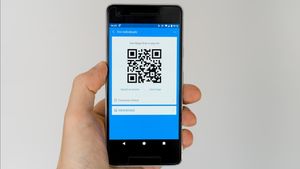JAKARTA - Kaspersky's research entitled "How Business Executives Perceive Ransomware Threat" on CEOs, VPs, and Directors. This research reveals that 67 percent of companies in Southeast Asia have been victims of cyber attacks.
Among the number of victims affected by the attack, the majority of company executives chose to pay the ransom.
But on the other hand, Kaspersky's study also revealed that the majority (94%) of companies in Southeast Asia would seek external help if attacked by ransomware.
Nearly a quarter (20%) of these will contact law enforcement authorities, while 29% will contact third-party cybersecurity incident investigations and response service providers such as Kaspersky. The rest will contact these two external organizations to find out how to respond to ransomware attacks.
“With only 5% of enterprise leaders confirming that they have internal incident response capabilities or have regular IT teams or service providers to spot ransomware attacks, it is clear that enterprises in the Southeast Asia Region need help,” said Yeo Siang Tiong, General Manager for Southeast Asia at Kaspersky, from a statement received in Jakarta.
Yeo also advocated cross-border cooperation from both public and private that would help governments and companies combat threats such as ransomware.
"However, that is not the only answer. Companies here should really look at concrete actions to improve skills or even build their own security defense team with incident detection and response capabilities guided by capable intelligence capabilities," Yeo added.
Global cybersecurity firm Kaspersky co-founded a global project called the “No More Ransom Initiative” which has grown from four partners to 188 and has donated 136 decryption tools covering 165 ransomware groups.
Since its launch in 2016, it has helped more than 1.5 million people decrypt their devices worldwide.
The project is being carried out by Kaspersky together with the National High Tech Crime Unit of the Dutch National Police, Europol's European Cybercrime Center and other partners.
However, Kaspersky still places great emphasis on preventing ransomware attacks. Global cybersecurity companies encourage businesses to follow these simple and effective recommendations to help protect their organizations from the threat of ransomware:
Always keep copies of your files up-to-date so that you can replace them if they are lost (for example due to malware or a faulty device). It should be stored not only on physical devices but also on cloud storage for greater reliability. Make sure you can quickly access your backups in case of an emergency. Install all security updates as soon as they become available. Keep your operating system and software up to date to remove the latest vulnerabilities. Provide safety education to your staff. Explain that by following simple rules, employees can help prevent ransomware incidents. Enable ransomware protection for all endpoints. Enterprises are advised to deploy anti-APT and EDR solutions, which enable capabilities for advanced threat discovery and detection, timely incident investigation and remediation, and have access to the latest threat intelligence. MDR providers can help hunt down advanced ransomware attacks effectively.The English, Chinese, Japanese, Arabic, and French versions are automatically generated by the AI. So there may still be inaccuracies in translating, please always see Indonesian as our main language. (system supported by DigitalSiber.id)













